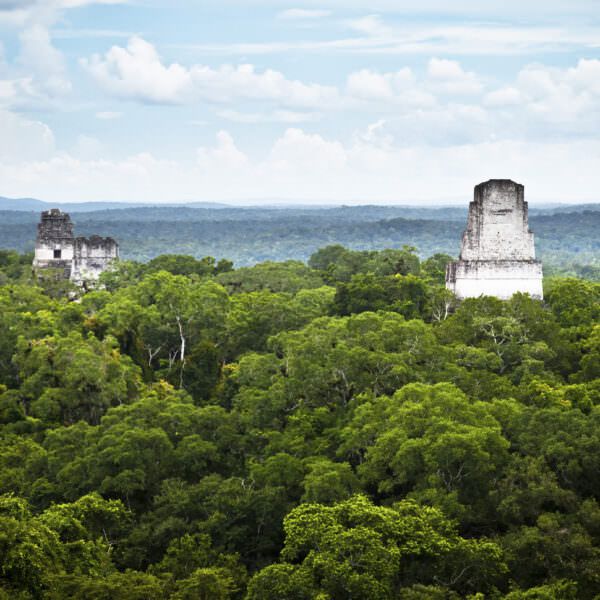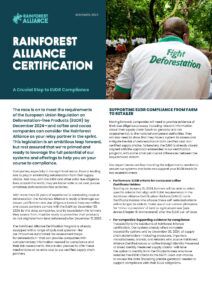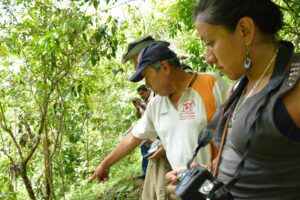Community: The Secret to Stopping Deforestation in Guatemala
The forest concessions of the Maya Biosphere Reserve have boasted a near-zero deforestation rate for 20 years.
Home » Issues » Forests & Biodiversity » Deforestation
Deforestation near Guatemala’s border with Belize.
Tropical forests absorb more carbon than any other kind of forest. They also provide shelter, food, and livelihoods to millions of Indigenous and local people, while housing two-thirds of the world’s biodiversity. But we are losing them at an alarming pace (mostly to agriculture): In 2019, we lost a football pitch of tropical forest every six seconds. Stopping deforestation and forest degradation in the tropics is critical to the survival of humanity.
This page features information about the Rainforest Alliance's work to stop tropical deforestation and links to all our related content and resources.

Stopping deforestation in the tropics has been at the heart of the Rainforest Alliance’s mission since its founding more than 35 years ago. Working with companies, civil society organizations, and local governments—all while centering the voices of the rural communities we partner with—we promote community forestry and regenerative agriculture throughout the tropics. Our decades of experience have demonstrated that these are the most effective strategies to keep forests standing and restore biodiversity.
This paper outlines our principles and strategies for stopping deforestation (and other forms of ecosystem conversion) in vulnerable tropical regions.
Learn how joining our Forest Allies community of practice will help your company have a greater impact on forests.
World Resources Institute (WRI) estimates the extent to which seven commodities—oil palm, soy, cattle, plantation wood fiber, cocoa, coffee, and plantation rubber—are replacing forests, and maps their impacts.
This Rights and Resources Initiative report examines the potential of community rights-based conservation to prevent biodiversity collapse.

The forest concessions of the Maya Biosphere Reserve have boasted a near-zero deforestation rate for 20 years.

Community-led landscape management is the best long-term solution to environmental and social challenges.

Since 2018, the Rainforest Alliance has been working in the Sintang District of West Kalimantan to promote an Integrated Landscape Management approach around oil palm and natural rubber production.

Through this initiative, the Rainforest Alliance will work with several organizations to address global environmental challenges associated with commodity-driven deforestation in some of the world’s most important tropical ecosystems and sourcing regions.

The race is on to meet the requirements of the European Union Regulation on Deforestation-free Products (EUDR) by December 30, 2024—and certified coffee and cocoa companies can consider the Rainforest... View more
Available in: English, Spanish, German, French, Portuguese

Find out how our systems and offerings are primed to help certified cocoa and coffee supply chain partners show compliance with EUDR requirements.

Dive into our 2022 Annual Report—and discover the extraordinary people and places at the heart of our global mission. We’re all in. Are you?... View more
Available in: English, Spanish, German, French, Japanese

Through this initiative, the Rainforest Alliance will work with several organizations to address global environmental challenges associated with commodity-driven deforestation in some of the world’s most important tropical ecosystems and sourcing regions.

| The Guardian
Global trade in chocolate, worth more than $1 trillion dollars a year, is leading to widespread deforestation in Ivory Coast and Ghana.

The Rainforest Alliance has developed a comprehensive approach to helping your company achieve deforestation-free supply chains and protect the world’s forests.
Your gift helps protect vital forest habitats for wildlife.
Support nature’s guardians. Act now.